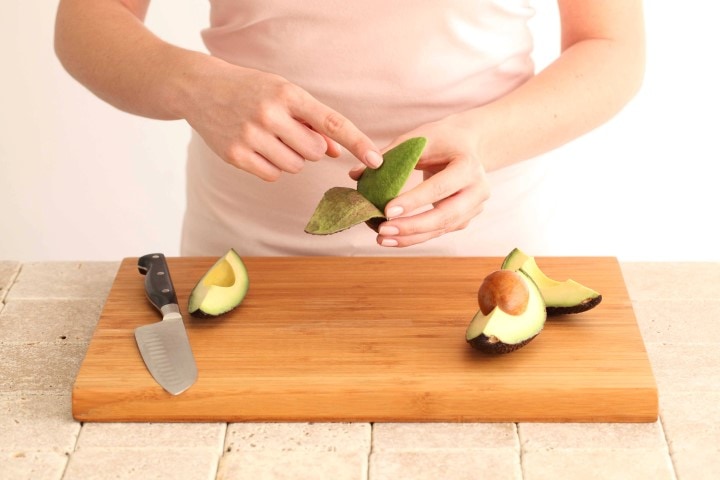If you’re a shopaholic trying to fight the urge, or if you’re someone who supports mindful consumption, place a few smart bets on best australian casino sites and read our thoughts on shopping and material consumption
It seems the world is getting tired of consumption. More and more people are starting to ask themselves: “Do I really need all of this?” Riding that wave is the growing popularity of the No Buy movement — quite literally, “I don’t buy.” At first glance, it sounds noble: don’t spend money on unnecessary things, save the planet, live consciously. But let’s be honest — is it really that simple and straightforward? And where do avocado peel boots fit into all this?
What Is the No Buy Movement?
Let’s start with the basics. The No Buy movement is essentially a voluntary refusal to make purchases. Everyone draws their own line: some people stop buying clothes, others go as far as to only allow essentials like food and basic household items. It might last a month, a year, or even a lifetime. Sounds reasonable: the less you consume — the less gets produced — the less harm to the environment.
But people are motivated by different things. Some do it for the environment, some to break their shopping addiction, and others to save money.
The internet is full of stories like: “I didn’t buy any clothes for all of 2023, and it changed my life.” These posts get tons of likes — but behind them often lie real struggles.
Now Let’s Talk About the Avocado Peel Boots
While some people buy nothing at all, others are doing the opposite — searching for “green” alternatives to everyday items. Here’s an example: boots made from avocado peels. Yes, avocado! Not just a fruit, but a natural wonder: eat it — it’s healthy, don’t eat it — its skin gets turned into “eco-leather.” The result is trendy, eco-friendly, and animal-free.
Startups, often backed by environmental activists, are developing this kind of material. Footwear made from it supposedly decomposes faster, requires no animal slaughter, and appeals to those who care about ecology and ethics.
Sounds great: you’re not buying “real” leather, you’re not supporting fast fashion, you’re wearing “green” boots and keeping your conscience clear. But of course — it’s a bit more complicated.
Time to Take Off the Rose-Colored Glasses
First, let’s be honest: No Buy isn’t for everyone. It sounds cool when you already have everything — a full wardrobe, working appliances, a winter coat hanging by the door. But if you actually need clothes, shoes, or furniture — no movement will save you. This especially applies to people with lower incomes: for them, skipping purchases isn’t a choice, it’s a forced reality.
Second, avocado peel boots aren’t exactly humanity’s ultimate triumph either. Their production still requires resources. You have to collect, process, and stabilize the peels, turn them into material, craft the boots, package them, and ship them. That’s a full-blown industry — and it has a carbon footprint too.
And then there’s the issue of disposal. Sure, the material breaks down faster. But not in a day, and not in your backyard compost. And if it contains synthetic additives for strength (which it usually does), then the boots become just as problematic as “regular” materials — only marketed differently.
Conscious Consumption ≠ Total Abstinence
It’s important to understand: conscious consumption doesn’t mean giving up everything. Sometimes it’s the opposite — better to buy one high-quality item that lasts ten years than ten cheap ones that fall apart in a season. This applies to clothes, shoes, and even electronics.
Or let’s say you buy boots made from recycled material — that can be a smart choice if you actually need them and plan to wear them for years. The problem starts when you buy them just because they’re “eco,” “trendy,” or “all the influencers have them.”
How Much “Green” Is Enough?
Sometimes it feels like we live in an era of eco-marketing: everything is labeled “recycled,” “eco,” “sustainable.” Sounds nice, but often it’s just business-as-usual with a new label.
Example: you didn’t buy leather boots because you wanted to be “ethical.” But then you bought three pairs made of avocado, pineapple, and recycled plastic bottles. Was that better? Maybe — but not necessarily.
So, What’s the Right Approach?
It’s both simple and complicated at once.
If you really need something — buy it. But do it mindfully: ask yourself if you actually need it, whether you already have something similar, and how long it will last. It’s often better to spend a bit more and get something high-quality than to regret it later.
If you can do without — skip it. Sometimes it really is easier to mend your old coat or repair your boots than to run around the mall looking for the “greenest alternative.”
If you want to stay informed — do your homework. Don’t just fall for pretty words like “eco-material” or “vegan footwear.” Look at what it’s made of, how it’s produced, and where it ends up after use.
Conclusion
The No Buy movement and avocado peel boots are not silver bullets or ultimate answers. They’re tools. Each of us has our own path to conscious living. For some, it’s complete refusal to shop. For others, it’s choosing alternative materials. And for many — it’s simply learning not to fall for advertising.
The point isn’t perfection — it’s about paying attention: to yourself, your belongings, and the world around you. Because at the end of the day — it’s not about the boots. It’s about who’s wearing them.

Sharon Howe is a creative person with diverse talents. She writes engaging articles for WonderWorldSpace.com, where she works as a content writer. Writing allows Sharon to inform and captivate readers. Additionally, Sharon pursues music as a hobby, which allows her to showcase her artistic abilities in another creative area.


